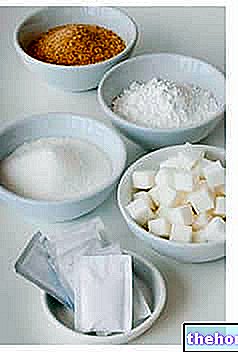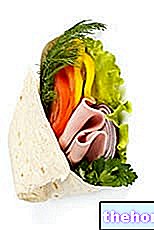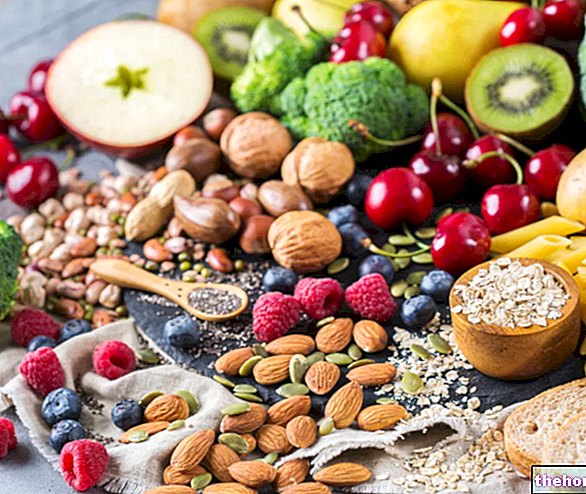«Bad digestion: the role of diet
Chewing and dyspepsia
Who said that those who are quick to eat are quick to work? In the light of modern knowledge, those who are quick to eat tend to sleep instead of working!

We must then consider that digestion, like any other activity of the organism, requires energy which is necessarily subtracted from other metabolic functions that are less important at that time. It is no coincidence that during the digestive activity the influx of blood to the digestive system in proportion to the difficulty of the digestive process. Tiredness and drowsiness at the end of a meal are the symptoms of a decrease in blood and oxygen to the brain in favor of the stomach and other organs that form the digestive system.
And if our worker were really willing to start working immediately after the meal, his performance would still be lower. To promote digestion, it is therefore necessary to eat in total tranquility, perhaps having a chat and maintaining the condition of relaxation for at least half an hour after the end of the meal.
Times of Digestion
Not all foods require the same digestion times.
Quantity (g)
Quantity (g)
100-200
200
200
200
200
200
100-200
200
100
You
Coffee
Cocoa
Beer
Wine
Boiled milk
Beef broth
Fresh egg
250
250
160
100
100
100
200
150
150
150
Beef
Raw or cooked ham
Roast veal
Roast steak
Roasted fillet
Boiled salmon
Cucumber salad
Potatoes in salad
Apples
Quantity (g)
Quantity (g)
200
300-500
150
150
150
150
150
150
150
150
Cocoa with milk
Beer
Fresh bread
Boiled rice
Boiled cabbage
Boiled carrots
Boiled spinach
Boiled lettuce
Potatoes
250
259
250
250
150
Roast steak
Roast hare
Roast duck
Boiled green beans
Stress and Emotional Factors
If living in love, as they say ironically to a person who has little appetite, is physiologically impossible, feeling a strong knot in the stomach as a result of a strong emotion is a situation in which everyone, at least once in their life, has found themselves .
Unfortunately, these moods are not always as pleasant as the birth of a new love. Anxiety, stress, dissatisfaction and restrained anger are undoubtedly some of the most influential components on the digestive processes. In these situations the stomach acts as a real accumulator. of tension, heavily interfering in normal digestion. In some predisposed people such problems are accompanied by eating disorders, even quite serious, such as anorexia or bulimia.
Work and Digestion
The work habits of a person can strongly affect the digestion of food. For example, if we think of stress, poor quality quick lunches, overly abundant dinners or the lack of fixed meal times, we can easily imagine how these factors often cause dyspepsia.
To keep the situation under control, it is good to choose wisely the foods to be consumed during lunch break, possibly considering the possibility of bringing them from home. In this regard, we recommend reading the following articles: diet and restaurant; diet and canteen.
As we have remembered several times in this article, it is also important to eat your meals calmly, possibly sitting down, allowing yourself at least 20-30 minutes of relaxation before resuming work.
Know your body
The last, but certainly not least, criterion that can influence digestion concerns the effectiveness of one's digestive system. In fact, all the factors examined so far have a strong subjective component. To cite an example, an unfavorable food combination for some may well be digestible for others.
In order to regulate one's digestion, it is therefore necessary to learn to listen to one's body, treasuring the signals it sends us.
Sedentary lifestyle and reduced physical activity
Physical activity is considered an important means of prevention and treatment for dyspesia. A little exercise improves the functionality of the digestive system and helps to keep body weight under control. However, it seems that certain sports such as running, lost lifting and hockey due to high intra-abdominal tension and pressure, are indirectly the cause of esophageal reflux, therefore of indigestion.
Other articles on "Poor digestion and behavioral habits"
- Diet and Poor Digestion dyspepsia
- Bad Digestion - Dyspepsia
- Dyspepsia - Medicines to Treat Poor Digestion
- Bad digestion: Natural Remedies









.jpg)


















